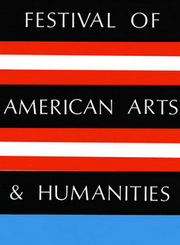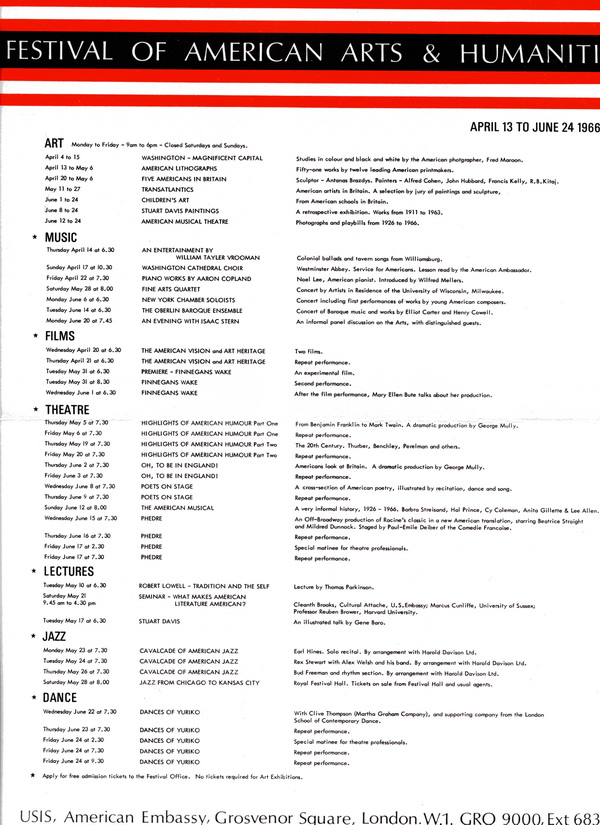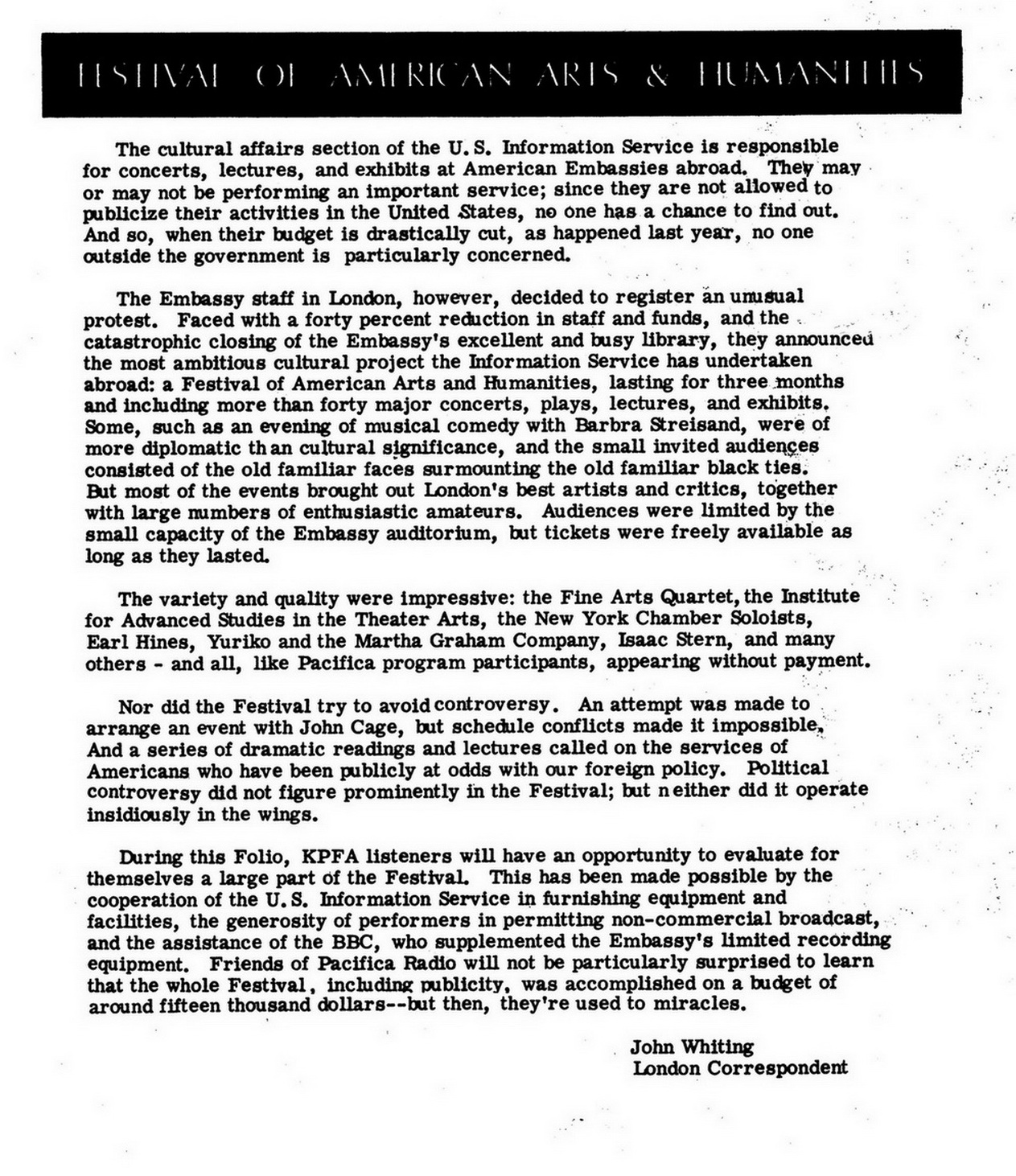My KPFA - A Historical Footnote
THE GOLDEN AGE OF THE ARTS
AT THE
AMERICAN EMBASY, LONDON, 1966

It lasted about five minutes. . .
When I arrived in London in 1966 as Pacifica’s correspondent, the first thing to catch my eye was the announcement of an incredible three-month arts festival at the American Embassy. Was this the invincibly philistine country whose dust I had just shaken from my shoes? With cautious curiosity I called at the US Information Service. I quickly became so involved that by the time the program was published, I was listed among the staff as Radio Producer. I was virtually living at the Embassy, recording most of the events, taking charge of the PA and ultimately spending another month producing an hour-long sound documentary that would be the centerpiece of the USIS report to Congress on the Festival. In the course of all this I met the two people who would ultimately determine the rest of my professional life.
 It soon became evident from the program [left] that whoever had selected the participants had shown a lofty disregard for their politics. Several of the literary evenings were produced and directed by George Mully, who, I would later learn, was a close friend and artistic collaborator with such vociferous exiles as Larry Adler. In fact, for his evenings dedicated to Highlights of American Humour [sic], George even got away with casting as compere the celebrated but black-listed American humorist in his own right, Donald Ogden Stuart, who was married to Ella Winter, an outspoken American communist and the widow of Lincoln Steffans ("I have seen the future [Russia] and it works!"). Also on the list of speakers was Professor Thomas Parkinson from UC Berkeley, who a year earlier had put together the thoroughly unbuttoned and never-to-be-surpassed Berkeley Poetry Conference, featured elsewhere on this website.
It soon became evident from the program [left] that whoever had selected the participants had shown a lofty disregard for their politics. Several of the literary evenings were produced and directed by George Mully, who, I would later learn, was a close friend and artistic collaborator with such vociferous exiles as Larry Adler. In fact, for his evenings dedicated to Highlights of American Humour [sic], George even got away with casting as compere the celebrated but black-listed American humorist in his own right, Donald Ogden Stuart, who was married to Ella Winter, an outspoken American communist and the widow of Lincoln Steffans ("I have seen the future [Russia] and it works!"). Also on the list of speakers was Professor Thomas Parkinson from UC Berkeley, who a year earlier had put together the thoroughly unbuttoned and never-to-be-surpassed Berkeley Poetry Conference, featured elsewhere on this website.
In those happy far-off days before the Vietnam War had turned the Embassy into the Alamo, I came and went with total freedom, signing in and out at the front desk and ultimately even foregoing the signature. (I soon knew the Marine guards by their first names.) By the the time I was putting together the documentary, I had taken over a spare room as a production center, frequently dropping in at all hours of the day and night to do a bit of further editing. I took tapes and even equipment out to work at home without signing for them—I could have walked out with every mic and tape recorder in the place!
For KPFA, the result of all this feverish activity was fourteen programs which were featured over the course of two months’ broadcasting. The summary that I wrote for their Folio (reproduced below) tells the story accurately. Alas, for the enthusiastic, dedicated USIS staff, it was their dying gasp. The magnificent cultural library that occupied the sizeable front right corner of the Embassy was closed down and the books given to London University College. (At least they weren’t trashed, as is now happening to so many of America's and Britain's public libraries.) With all the extra security that anti-US demonstrations brought about, the public is no longer allowed inside except in small rigidly controlled numbers and the Embassy’s intimate little theatre serves only for staff indoctrination. In the end, it was just one more long footnote to Richard Hoffstadter’s Anti-Intellectualism in America.
